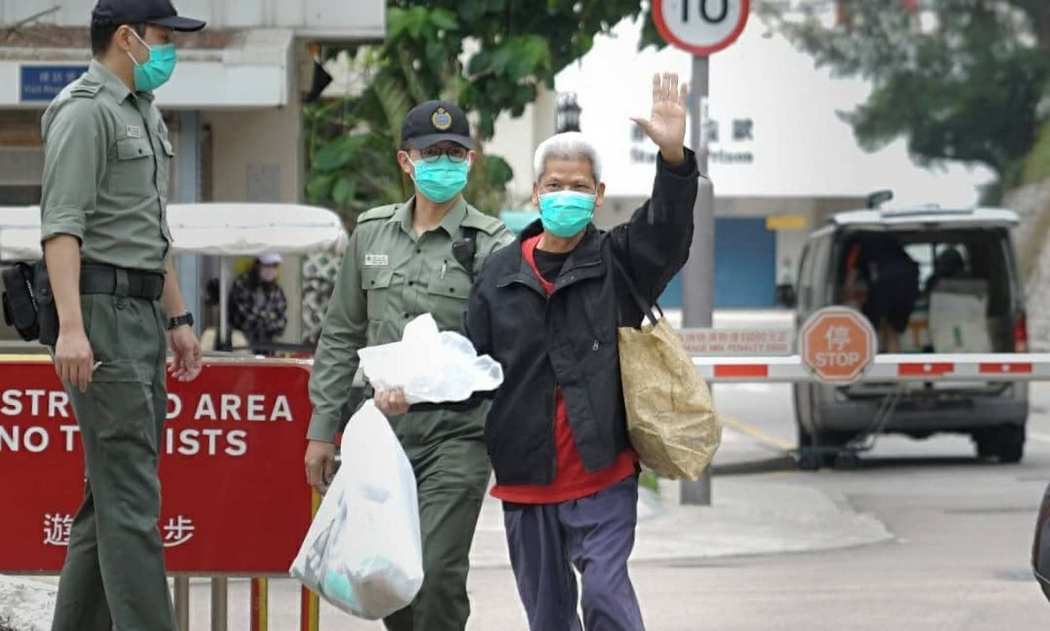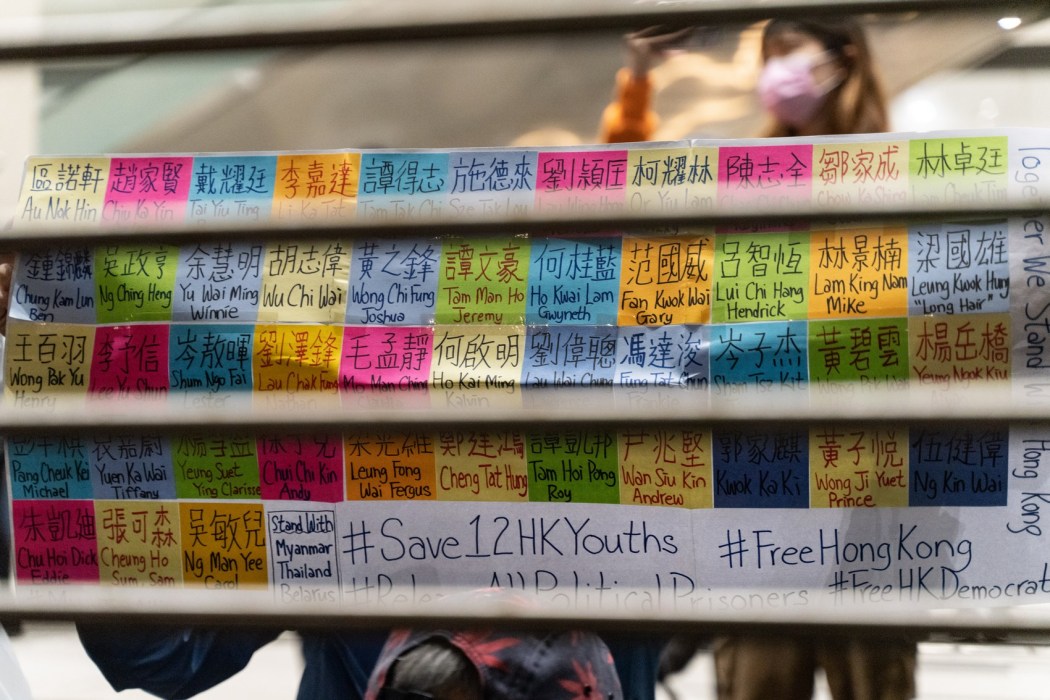Veteran Hong Kong activist Koo Sze-yiu has been sentenced to nine months in jail over a plan to protest against the overhauled District Council race last December.

Koo, 78, was convicted of “attempting or preparing to do an act with a seditious intention” under the colonial-era sedition law over a planned protest against the local elections, from which opposition candidates were shut out following an electoral overhaul that guaranteed only “patriots” could govern.
Chief Magistrate Victor So, one of the city’s designated national security judges, handed Koo a guilty verdict on Friday morning at the West Kowloon Magistrates’ Courts. He said that Koo had planned to take a home-made coffin to the Registration and Electoral Office last December 8, to protest the District Council race, which was held two days later.
On the coffin were Chinese-language protest slogans that read “One Country, Two Systems to the funeral parlour” and “Love the country and the party to get a seat,” So said, adding that Koo also planned to chant other slogans at scene and had informed the media about his action.
He said Koo had met with an election office employee a day before the planned demo, and notified the latter about his plans. Koo, however, did not protest as he was arrested by officers from the National Security Department of the police hours before he was set to go to the Registration and Electoral Office.
‘Symbols of death’
Delivering his verdict, So said that Koo’s protest aimed at inciting hatred against authorities and that Koo carried the purpose of overthrowing Beijing. He added that Koo was well-planned and would definitely stage the protest had the police not arrested him in advance.
“Freedom of speech is not absolute and must be practiced within the current legal framework,” the magistrate said in Cantonese.

“The defendant planned to bring a coffin and cast underworld bank notes – both symbols of death – in protest… his purpose was to overthrow the central government and to bring its rules to an end,” So said.
“His protest would clearly incite hatred from others against the central government and the Hong Kong government, so as to reject the results of the District Council elections and, as a result, to create resistance.”
The prosecution told the court that Koo had already been convicted 15 times, including once in 2022 when he was found guilty of the same offence under the sedition law and was sentenced to nine months in prison.
‘Martyr’
During mitigation, Koo said he had been a peaceful activist for decades and that he was willing to make sacrifices for the pro-democracy movement.
“I will readily become a fighter for social movements, a warrior for the pro-democracy movement, and a martyr for democracy and human rights,” Koo said in Cantonese.
The veteran activist also described the Beijing-imposed national security law and the upcoming legislation under Article 23 – a homegrown security law currently under public consultation – as “a big disaster.” So warned him against making political comments and urged him to stick to his mitigation plea.
See also: Article 23 then and now: What changed between 2002 and 2024
Koo said his personal history was simple and that he had always hoped for democracy and freedom in the city. He added that the lengthy pre-trial detentions faced by most of the 47 democratic defendants in the city’s biggest national security trial were akin to “historical injustice” and evidence of “the fascist rules of China and Hong Kong.”
Forty-seven pro-democracy politicians and activists were detained in March 2021 and accused of conspiring to subvert state power by organising an unofficial primary election in the previous year. Most of them have been remanded in custody since. At present, 12 are on bail awaiting a verdict.

The court previously heard that Koo has rectal cancer. Koo said he was expecting to undergo surgery in March or April.
So said most of Koo’s previous convictions were related to the disturbance of social order, and that he was a “recidivist.” The magistrate set nine months as the starting sentence and did not offer any discount.
Koo’s friends sitting in the public gallery, including activist Lui Yuk-lin, shouted “hang in there” to Koo as he was taken away by correctional officers.
In July 2022, Koo was sentenced to nine months in jail under the sedition law over plans to stage a demonstration against the 2022 Winter Olympics in Beijing.
Sedition is not covered by the Beijing-imposed national security law, which targets secession, subversion, collusion with foreign forces and terrorist acts and mandates up to life imprisonment.
Those convicted under the sedition law – last amended in the 1970s when Hong Kong was still a British colony – face a maximum penalty of two years in prison for a first offence. A subsequent offence warrants up to imprisonment of three years.
Support HKFP | Policies & Ethics | Error/typo? | Contact Us | Newsletter | Transparency & Annual Report | Apps
Help safeguard press freedom & keep HKFP free for all readers by supporting our team























